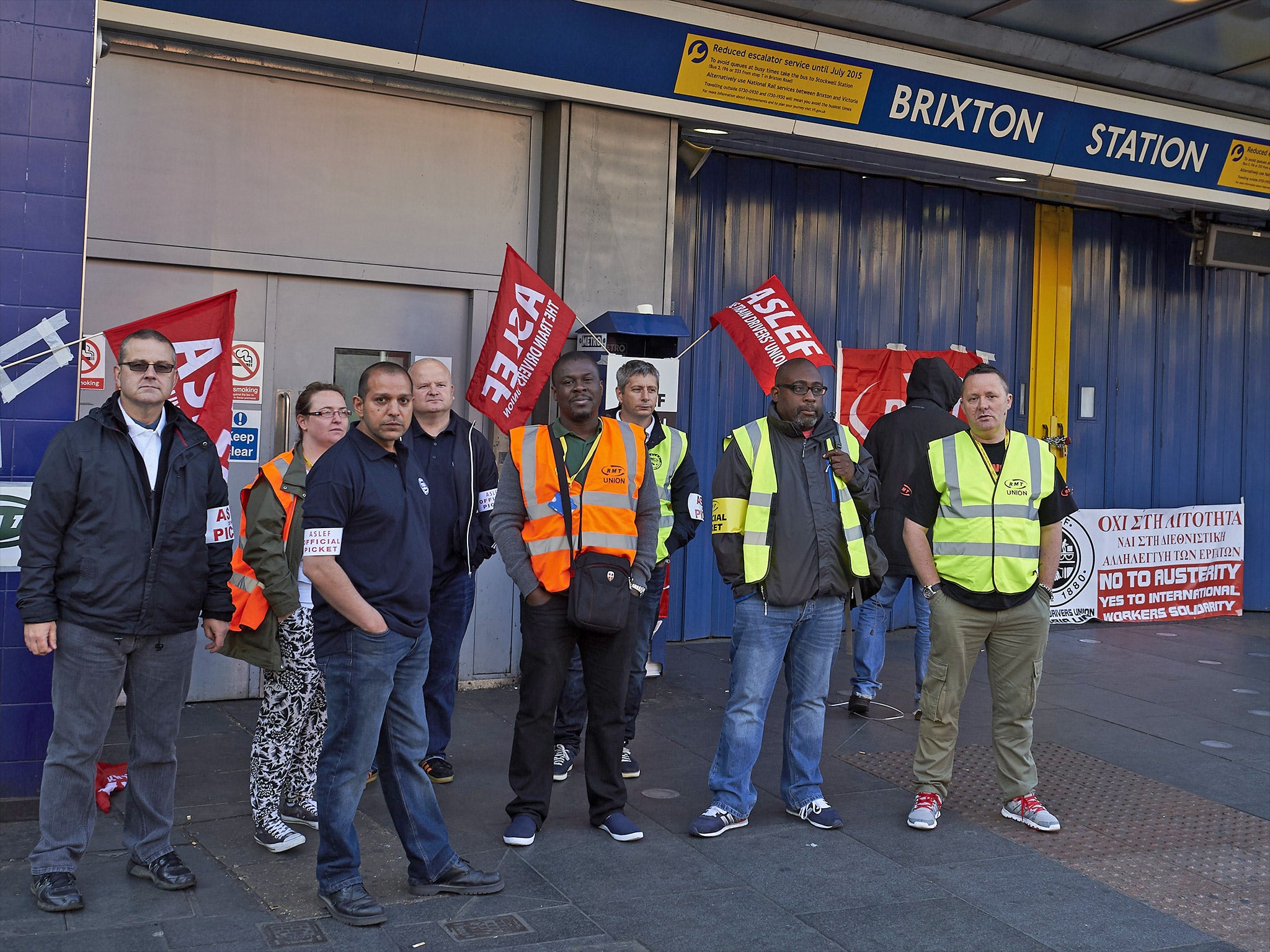If you curb the power of trade unions, you reduce the rights of working people
The government doesn’t really care about democratic engagement - it just wants to find a way to outlaw strikes

In an act of political doublespeak, business secretary Sajid Javid described the purpose of Trade Union Bill - which has its first reading in the House of Commons today - thus: “Trade unions have a constructive role to play in representing their members’ interests, but our one nation government will balance their rights with those of working people and business.”
This is exactly the kind of asinine logic we can expect from an organisation that brands itself “the workers’ party” whilst simultaneously cutting tax credits. It’s almost painful to have to state something so obvious, but trade unions and working people are the same thing; if you curb the power of trade unions, you automatically reduce the rights of working people. That’s why trade unions call themselves the labour movement. Javid may as well have said he was going to protect the rights of noses by systematically punching everyone in the face.
The government says workers must stop striking on “derisory ballot turnouts,” so the Bill demands that 50 per cent of the workforce must vote to make a strike legal. Any good trade union officer will tell you that no strike ballot should be a getting a low turnouts, because a union should be active and engaged in its workplace. Indeed, all of the most recent strikes – like the London tube strike – have had turnouts that comfortably surpass the 50 per cent threshold. But though unions have asked for the ability to modernise, by conducting ballots by email or phone, they have been refused this right. Why? Because the government doesn’t really care about democratic engagement - it just wants to find a way to outlaw strikes by the back door.
None of the better employers in the UK have publicly called for this clampdown on trade union activity, because frequent strikes and poor relations with unions are something you find only in the very worst workplaces.
A salient example of is British Airways, which was hit by 22 days of walkouts in 2010. Industrial relations experts accused the company’s chief executive, Willie Walsh, of deliberately trying to break the union so employees would not be able to defend themselves against job losses and salary cuts. The airline’s cabin crew are now reliant on working tax credits to supplement basic salaries, with some earning as little as £12,000 a year. Meanwhile Walsh himself earned £5m in 2013, a pay rise of 400 per cent on the previous year.
Sports Direct, owned by billionaire Mike Ashley, is reported to be so hostile to trade unions that all organising work has been driven underground. The GMB union complained that it was made to feel like it was organising the “French resistance” because engaging workers was so difficult in this toxic environment. And yet 90% of the company’s workforce is on zero-hours contracts, while 2,000 others get bonuses of up to £100,000.
This is the kind of society we can expect to live in after the trade union movement is weakened: a society where the salary gap between employer and worker widens exponentially; where managers are free to impose any conditions they like. It will be a lot worse than having to take a replacement bus to work.
Join our commenting forum
Join thought-provoking conversations, follow other Independent readers and see their replies
0Comments